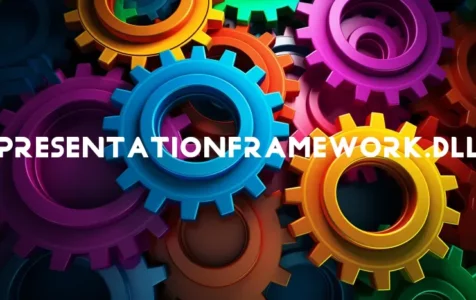Understanding PresentationFramework.dll
The PresentationFramework.dll is a dynamic link library (DLL) file in the Windows operating system, which is a crucial part of the .NET Framework. Specifically, this file is associated with the Windows Presentation Foundation (WPF), the graphical subsystem for rendering user interfaces in Windows-based applications. It provides the functionality needed to build rich, interactive desktop applications.
Is the PresentationFramework.dll File Safe?
Yes, the original PresentationFramework.dll file, which is created by Microsoft Corporation, is safe to run on your computer. It is a legitimate file, essential for many applications that rely on WPF technology to function correctly.
However, as with any executable file, there is a possibility that malware could disguise itself as PresentationFramework.dll. If you notice that the file is located outside of the usual system directories, or if your antivirus flags it as suspicious, it could potentially be a virus or malware.
Common Issues with PresentationFramework.dll
Some users may encounter errors related to PresentationFramework.dll. These issues can occur for several reasons:
Expert Tip: For smoother PC performance, consider using a PC optimization tool. It handles junk files, incorrect settings, and harmful apps. Make sure it's right for your system, and always check the EULA and Privacy Policy.
Special offer. About Outbyte, uninstall instructions, EULA, Privacy Policy.
– The file may be missing, deleted, or moved from its original location.
– The file might become corrupted, often due to malware or other software-related problems.
– There might be registry issues with references to the obsolete or incorrect version of PresentationFramework.dll.
– Application errors may occur if the DLL is not correctly registered or if there are conflicts with other versions of the file.
– Incompatibilities or conflicts may arise when trying to use WPF in projects targeting newer frameworks, like .NET 5 or later.
– Problems can also arise when trying to reference PresentationFramework.dll in newer frameworks where support for WPF might be limited or require specific project configurations.
Fixing Issues with PresentationFramework.dll
To resolve issues with PresentationFramework.dll, here are some steps you can follow:
1. Restore from Recycle Bin: If you’ve accidentally deleted PresentationFramework.dll, you might just need to restore it from the Recycle Bin.
2. Reinstall the Program: If a specific program is causing the error, try reinstalling it to restore the correct version of the DLL.
3. Run a Malware Scan: If you suspect the issue could be due to malware, run a comprehensive scan of your system using reliable antivirus software.
4. Use System File Checker (SFC): Run this utility to check for corruption in Windows system files and restore them if needed. You can run it by opening the Command Prompt (as an administrator) and typing `sfc /scannow`.
5. Install Windows Updates: Ensure your system is up-to-date with the latest service packs and patches from Microsoft, which could include fixes for related issues.
6. Manually Register the DLL: You can try to manually register the DLL using the `regsvr32` command in the Command Prompt (opened as an administrator).
7. Use the Correct .NET Targeting: For developers facing issues while trying to use WPF in newer .NET projects, make sure your project file is configured to target the appropriate version of the .NET Framework with WPF support. You may need to enable WPF using project file tags like `true` for .NET Core 3.1 or newer.
8. Seek Professional Help: If these steps don’t solve your problem, it may be best to seek help from technical specialists or engage in community discussions for more personalized support.
Community Discussions and Further Assistance
Community forums like Stack Overflow host discussions where developers share experiences and solutions regarding common DLL issues. For specific guidance or to address complex problems not covered by general troubleshooting steps, you can join these communities and ask for help. Often, other developers or IT professionals will have faced similar challenges and can offer insights or detailed instructions.
If you are still experiencing difficulties with PresentationFramework.dll, or need more advanced troubleshooting, it’s encouraged to seek help in these communities, professional support channels, or the official Microsoft support pages, where you can learn more about security updates and vulnerabilities related to .NET Framework files.
